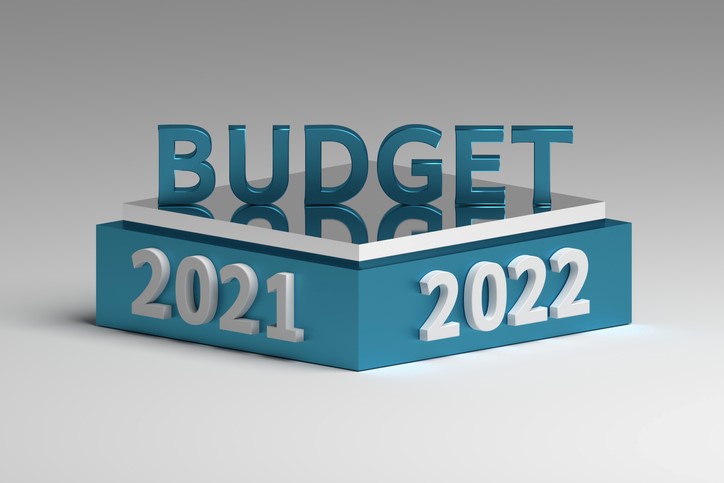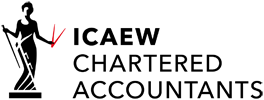Budget 2021 – October 21

On 27/10/21, Rishi Sunak delivered his third Budget in conjunction with the Public Spending Review.
Many of the announcements had already been leaked or announced earlier in the year – but there were some good points.
INCOME TAX AND EMPLOYERS
NATIONAL LIVING WAGE INCREASED TO £9.50 AN HOUR
Among the announcements leaked before Budget Day was an increase in the hourly rate for the National Living Wage (NLW) which was greater than inflation for those aged 23 or over.
For an employee working a 35-hour week that would mean a salary of £17,290 a year.
With the 1.25% increase in employers NIC to 15.05% on earnings over £9,100, this would result in £1,233 on top of the gross salary, meaning the cost to the employer would be £18,523 a year before pension costs.
- Aged 23 and over: £8.91 to £9.50
- Aged 21-22: £8.36 to £9.18
- Aged 18 to 20: £6.56 to £6.83
- Aged under-18: £4.62 to £4.81
- Apprentice Rate: £4.30 to £4.81
NO CHANGES TO INCOME TAX RATES AND PERSONAL ALLOWANCE BUT LEVY IN PLACE
The basic rate of income tax and higher rate remain at 20% and 40% respectively, and the 45% additional rate continues to apply to income over £150,000.
As previously declared in the March Budget, the personal allowance and higher rate threshold have been frozen at £12,570 and £50,270 until 2025/26.
The Transferable married couples allowance will remain at £1,260.
As announced on 07/09/21, from 06/04/22 dividend income will be taxed at 8.75% (was 7.5%), 33.75% (was 32.5%) and then 39.35% (was 38.1%), depending upon whether the dividends fall into the basic rate band, higher rate band or the additional rate band.
The first £2,000 of dividend income continues to be tax-free. The summary of the economic impact published on Budget Day suggests that these rates will remain in place until 2025/26.
It has been confirmed that overdrawn directors loan accounts will have S455 tax charged at 33.75% of the outstanding balance rather than the current 32.5%.
SOME NATIONAL INSURANCE THRESHOLDS ARE CHANGING
The 1.25% increase in the rate of National Insurance Contributions (NICs) paid by workers and employers announced on 07/09/21 to provide extra funds for Health and Social care will go ahead from 06/04/22.
This will become a new Health and Social Care Levy from 2023/24 onwards.
Although the income tax personal allowance and thresholds are frozen until 2025/26, certain NIC thresholds have been increased in line with inflation.
For 2022/23, employees and the self-employed will start paying NICs at £9,880 and pay at 10.25% (self-employed) and 13.25% (employees) up to £50,270.
Note that the Upper Limit is frozen in line with the income tax higher rate threshold and that the new 3.25% rate will apply to earnings or self-employed profits in excess of £50,270 (was previously 2%)
Employer contributions at 15.05% will apply to earnings in excess of £9,100 a year for 2022/23.
This rate will also apply to Class 1A for benefits in kind.
Employment Allowance will remain at £4,000 for eligible businesses.
Class 2 NICs will be at £3.15pw
Pensioners who currently have a “C” NI code (and hence pay no NI) will have to pay 1.25% from 23/24 so have a one year reprieve from the new levy.
CARS (FOR BIK)
The comany car fuel multiplier has increased from £24,600 to £25,300
The BIK rates are increasing by 1% (as previously notified) and are expected to remain at those levels until 2024/25 enabling businesses to predict what the P11d costs will be.
BUSINESSES
“TEMPORARY” £1 MILLION ANNUAL INVESTMENT ALLOWANCE EXTENDED
Businesses investing in plant and machinery will welcome yet another extension in the 100% Annual Investment Allowance (AIA) until 31/03/23. The 100% relief was scheduled to revert to £200,000 on 01/01/22. This deduction is available to unincorporated businesses as well as limited companies and the equipment does not have to be new.
This tax allowance is not as generous as the 130% super-deduction announced in the March 2021 Budget which is available when new plant and machinery is acquired by limited companies between 01/04/21 and 31/03/23.
The 130% superdeduction should still be used primarily but the AIA is good for those purchases that don’t meet the requirements.
BUSINESS RATES TO BE MADE “FAIRER” AND 50% DISCOUNT FOR THE RETAIL AND HOSPITALITY SECTOR
The Government continue to promise a fairer system of Business Rates and will provide new reliefs for investment and improvements to business premises. In order to support businesses and jobs in the retail, hospitality and leisure sectors, the chancellor announced a 50% discount in business rates up to £110,000.
From 2023 reevaluations will be every 3 years to make the system “fairer and more timely”.
Businesses looking to implement green infrastructure will also benefit.
High Street businesses still operate at a significant disadvantage to online retailers who generally pay lower Business Rates, and some pay a lot less corporation tax. The Government will consult shortly on an Online Sales Tax which may help level the playing field.
RECOVERY LOAN SCHME EXTENSION
The Recovery Loan Scheme (RLS) will continue until 30/06/22 and there are changes to conditions of the scheme.
Going forward, finance will be available up to £2m per business, and the government guarantee will be reduced from 80% to 70% to encourage the lending market to move back to normality.
CORPORATION TAX
As has been previously announced, from 01/04/23 there will be an increase in the rate of CT from 19% to 25% (for those with profits over £50,000, there will be a sliding scale)
INDIVIDUALS
MORE TIME TO REPORT AND PAY CGT ON RESIDENTIAL PROPERTY DISPOSAL
Many were expecting big changes to capital gains tax in the Autumn Budget, particularly as the Office of Tax Simplification (OTS) had suggested that CGT rates should be aligned with income tax rates.
The CGT rates, allowances and exemptions all remain unchanged from 2021/22: the annual exemption remains at £12,300 per individual and £6,150 for trustees.
The Government have however taken on board the OTS recommendation that the 30 day reporting and payment deadline should be increased to 60 days. This will be a welcome change for property owners and their tax agents and will affect residential property disposals that complete on or after 27/10/21.
Entrepreneurs will be relieved that CGT Business Asset Disposal Relief continues resulting in a 10% CGT rate on the first £1 million of lifetime gains.
PENSION TAX RELIEF UNCHANGED
There was much speculation that the Chancellor would restrict the tax relief for saving into a pension to basic rate only. Thankfully that has not happened (yet) and the key limits are unchanged.
The annual pension input limit for most taxpayers remains at £40,000 which covers both individual and employer contributions. The lifetime pension allowance which dictates the size of the individual’s fund has been frozen at £1,073,100.
However the normal minimum pension age rises from 55 to 57 from 6/4/28 (affecting those born in 1973 or later)
INDIVIDUAL SAVINGS ACCOUNT LIMITS FROZEN AGAIN
The adult ISA annual subscription limit for 2022/23 will remain unchanged at £20,000 and the Junior ISA limit remains at £9,000 a year.
OTHER
HOSPITALITY AND BEVERAGES : ALCOHOL DUTY
- From February 2023 there will be a new system based on “the stronger the drink, the higher the rate”
- Prosecco brought into line with still wines by ending the 28% duty premium
- Proposals for smaller producer relief to include small cider makers and those making alcoholic drinks of less thatn 8.5% ABV
AIR PASSENGER DUTY (APD)
- A lower rate of APD to be introduced for UK domestic flights from April 2023.
- Higher rates to be introduced for long haul flights to capitals over 5,500 miles from London.
TAX ADMINISTRATION POINTS
- Finance Bill 22 to confirm HMRC’s right to use its discovery powers to recover tax charges such as the High-Income Child Benefit Charge, Gift Aid Donations and certain pension charges, with retrospective effect.
- Making Tax Digital (MTD) for Income Tax delayed until April 2024 (see separate post on MTD for IT)
- Finance Bill 22 to include provisions to simplify the basis period rules for the self-employed and partners from April 2024. (see separate post on basis periods)
- New penalties for the late submission and late payment of tax for Income Tax Self Assessment (ITSA) from 6 April 2024 for taxpayers in ITSA in MTD, and 6 April 2025 for all other ITSA taxpayers.
FURTHER GUIDANCE
https://www.gov.uk/government/publications/autumn-budget-and-spending-review-2021-documents
News
On 06/03/24 Chancellor Jeremy Hunt presented his Spring Budget to […]
Companies House have stated that they will be increasing their […]
On 22/11/23 Chancellor Jeremy Hunt presented his Autumn Statement to […]
The trend towards digital paperless office solutions is rapidly increasing, […]
The VAT Flat Rate scheme (FRS) was introduced in 2002 […]









